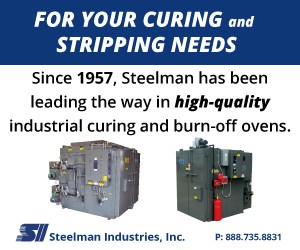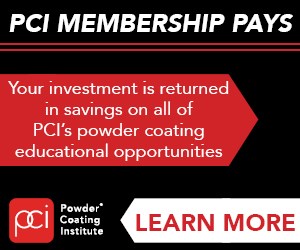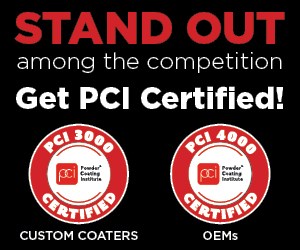Taking Finishing to the Global Stage
Moving to the global stage is exactly what South Carolina’s Roy Metal Finishing accomplished recently when it agreed to be bought by Aalberts Industries N.V., a Dutch technology company that operates in 50 countries.
There was a time when finishing operations were passed down through the generations, a family member handing off the reins of the company to the younger blood, who were eager to roll up their sleeves and get their shoes ruined by caustic chemicals and the other hazards of the less-than-glamorous profession.
Some shops have gone through two or three generations, but very few ever make it to the fourth generation. The Family Business Center says that only 30 percent of all family-owned businesses even make it into the second generation, and just 12 percent get into the third. Only 4 percent get to that fourth-generation level.
A lot of that has to do with having family members who want to go into the business, and who have the qualities needed to take on such a monumental, thankless challenge. Even more has to do with the economics of the industry, and the finishing world is starting to see that ring true more often.
If a family-owned business wants to remain “local,” they are probably going to be able to compete. Go outside your immediate area, and you will have to start writing bigger checks for transportation, staffing, benefits and more. Go national, and you’d better find a good CEO to run the multiple operations. Global? You’d better find a great partner.
That is exactly what Roy Metal Finishing in South Carolina did recently when it agreed to be bought by Aalberts Industries N.V., a Dutch technology company that operates in 50 countries and specializes in building installations, climate control, industrial controls and industrial services, the latter of which serves the automotive, machine-build, turbine, aerospace and general industries.
RMF president John Pazdan and the Roy family that started it in 1961 built it from the ground up. It grew and just kept growing, becoming one of the best shops in North America. As it partnered with larger OEMs and Tiers, the demand for its services continued to grow.
In the mid-2000s, RMF opened a second facility to handle work for Continental and ZF. In 2012, the company spent $13 million on a third facility nearby to provide zinc and zinc alloy electroplating, electrocoating, zinc phosphating and passivation for its automotive, heavy truck and industrial equipment customer base. In 2016 they added additional production space, and in 2017 an additional zinc nickel plating line came on line, bringing the total investment since the recession to almost $30 million. The 24 acre campus has room for continued growth to support existing plating related markets and new competencies such as anodizing.
“These things can get very expensive,” says Pazdan, son-in-law of Cliff Roy, the company’s chairman and son of founders Donald and Cecile Roy.
That is the inherent problem with being good at what you do: your customers want to work with you no matter where they have manufacturing facilities, be it in Mexico, Europe, China or Russia. RMF grew because its customers loved its work and threw more business the shop’s way. Other customers came knocking, wanting to build partnerships. Suddenly, Don Roy’s once-small shop was looking for real estate and contractors. And even then, the space wasn’t large enough.
“I think it’s really becoming a sign of the times,” Pazdan says. “It starts with having these big companies supplying these bigger OEMs, and then when you look at the applicator side, it is such a fragmented group of these second-, third- and sometimes fourth-generation family businesses; some are capitalized well and some are not, and some are growing and some are dying.”
It’s not necessarily a weak link in the supply chain, but the fragmentation gives a sense of less stability than most Tiers and OEMs are comfortable with. Obviously, purchasing managers would prefer to deal with a smaller handful of suppliers instead of working with a dozen or more finishing shops to get the volume they need. It is a practice more common in aerospace, where Nadcap requirements often prevent some shops from getting work, and it is picking up steam in the automotive and heavy truck industries.
What Aalberts Industries does is give RMF the ability to compete in a much larger footprint than just South Carolina or the Southeast, or even North America. The Dutch company knows how to do business in China and Europe and South America—wherever it needs to set up shop and build partnerships. More importantly, Aalberts is a $3 billion company that can pay for space and equipment much more easily than a family-run organization can.
“The big question we always ask ourselves is, what do the next five years hold?” Pazdan says. “And now you have a public company stepping into the applicator side of the business, and is that finally the backbone that you need to really legitimize the future of our industry?”
Chances are we might start to see more global conglomerates knocking on doors of some of the larger U.S. finishing operations. It’s just that, when you become so good at what you do, and so dependable and professional, your customers want you to follow them wherever they may go.
Related Content
Curing Oven Basics
Simply heating up the substrate does not cure the coating. There are many variables to consider when choosing the best cure oven for your application...
Read MoreIntumescent Coating Provides Up to 3 Hours of Fire Protection
PPG Steelguard 951 coating is designed to provide protection against fire and corrosion.
Read MoreShedding Light on Surface Inspection
State-of-the-art reflector-based lighting system improves luminosity and ergonomics for surface inspection tasks while reducing energy usage.
Read MoreTTX’s Automated Conveyor Carrier System Offers Wireless, Flexible Operation
ACC system designed for reliable, consistent point-to-point movement of everything from small to heavy parts.
Read MoreRead Next
Education Bringing Cleaning to Machining
Debuting new speakers and cleaning technology content during this half-day workshop co-located with IMTS 2024.
Read MoreDelivering Increased Benefits to Greenhouse Films
Baystar's Borstar technology is helping customers deliver better, more reliable production methods to greenhouse agriculture.
Read MoreEpisode 45: An Interview with Chandler Mancuso, MacDermid Envio Solutions
Chandler Mancuso, technical director with MacDermid Envio discusses updating your wastewater treatment system and implementing materials recycling solutions to increase efficiencies, control costs and reduce environmental impact.
Read More













.jpg;maxWidth=300;quality=90)








